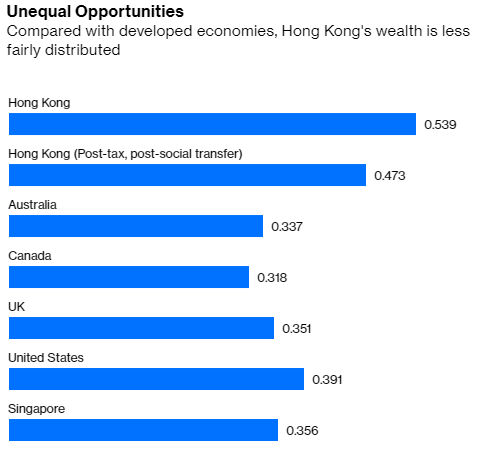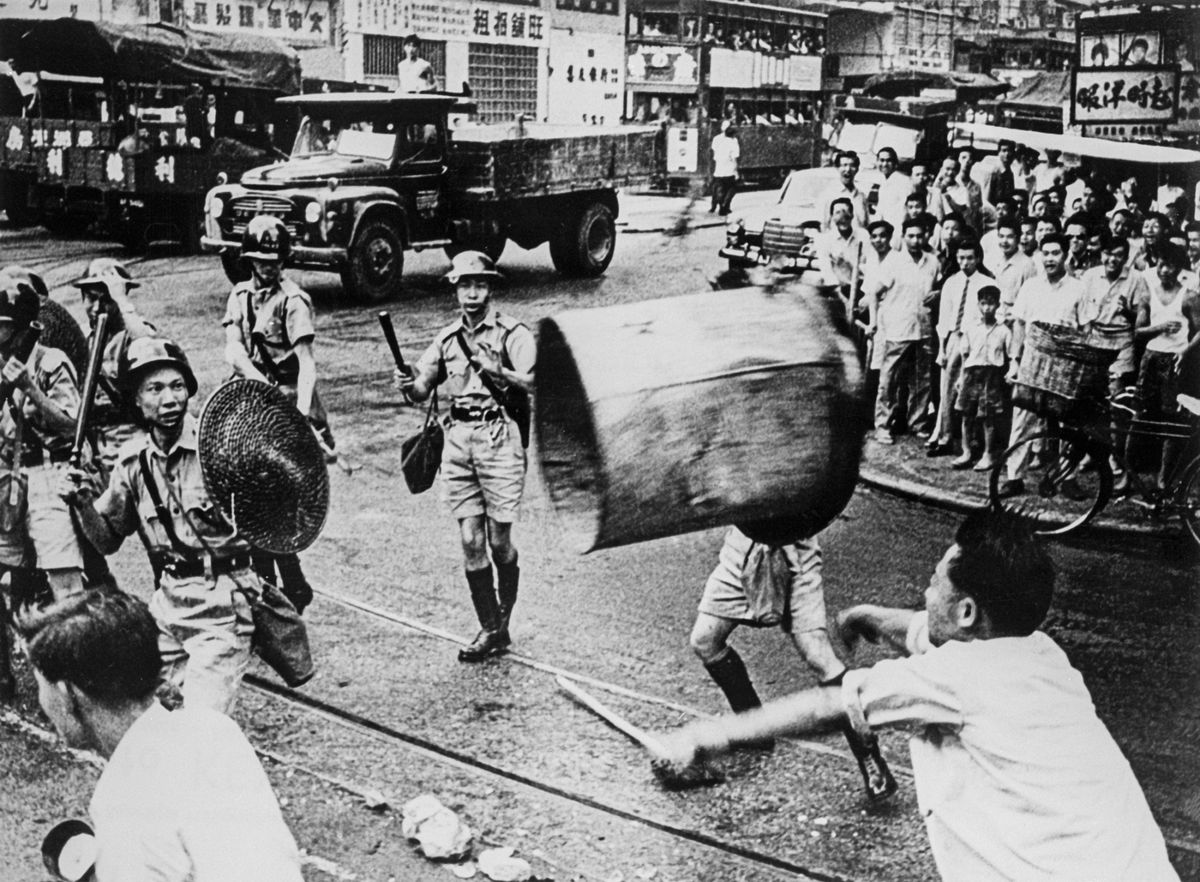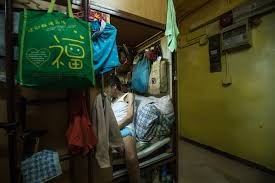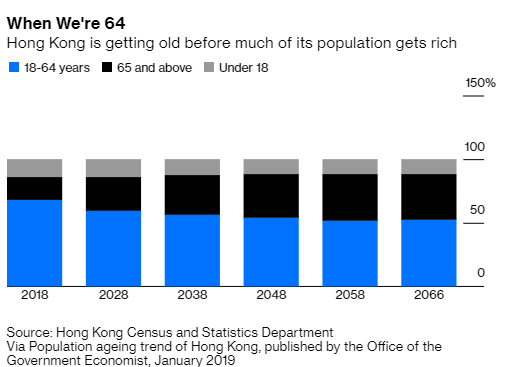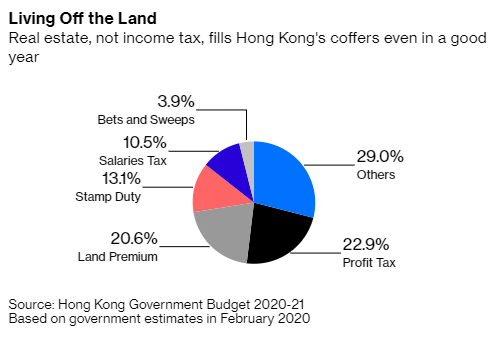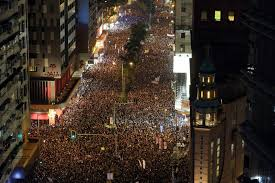I don't do threads, but inequality in Hong Kong is too big for one tweet. So here’s one on an exclusionary, minimalist welfare system, no longer fit for purpose. The government has not shown us it can forge consensus, but it IS policy address time... (1/) https://www.bloomberg.com/opinion/articles/2020-11-17/hong-kong-needs-to-tackle-its-worsening-inequality
Pockets of penury have long been seen as an unavoidable consequence of lucrative wild capitalism. Today, one in five Hong Kongers sit below the poverty line, many of them old. More than 90% of unemployed people do not get or qualify for CSSA. The amounts are derisory anyway.
Why? Well, history, in part. The British backed “positive non-interventionism” and never really saw a problem – the population was young, employment plentiful. Even after 1960s riots, social welfare roots were shallow. Provision suffered in post-Asian Financial Crisis austerity.
Then of course, the territory’s business leaders have always had the loudest voice. The vulnerable have had far fewer advocates.
Now Hong Kong is stuck in an inequality trap, a welfare model that isn’t redistributing or providing adequate insurance but also faces strong resistance from the middle classes to establish the universal social programs it needs.
So what can be done? Plenty. Hong Kong needs a fiscal structure that promotes redistribution, not one that depends on land sales. That may mean a consumption levy and a wealth tax. To fund a universal basic pension, support broad employment insurance & tackle housing.
The storied entrepot and financial hub can no longer live on Friedman’s terms of wild capitalism. Beijing-backed leaders in Hong Kong won’t entertain demands for more participatory politics, but they can and should fix the social compact.
If you want to read more, apart from my essay (!), I heartily recommend 3 books: “Poverty in the Midst of Affluence” by Leo Goodstadt. A look at how the political system entrenched a view that social spending threatens prosperity. https://hkupress.hku.hk/pro/36.php
Then “Poverty in a Rich Society”, essays edited by academics Maggie Lau & David Gordon. A really helpful look covering public understanding of poverty, effectiveness of alleviation methods and more. https://cup.cuhk.edu.hk/index.php?route=product/product&product_id=3443
And finally, a book that provides a framework and grapples with similar questions in Singapore’s context, “Hard Choices”, by Donald Low and Sudhir Vadaketh. Worth a read. That's all, folks. https://nuspress.nus.edu.sg/products/hard-choices

 Read on Twitter
Read on Twitter